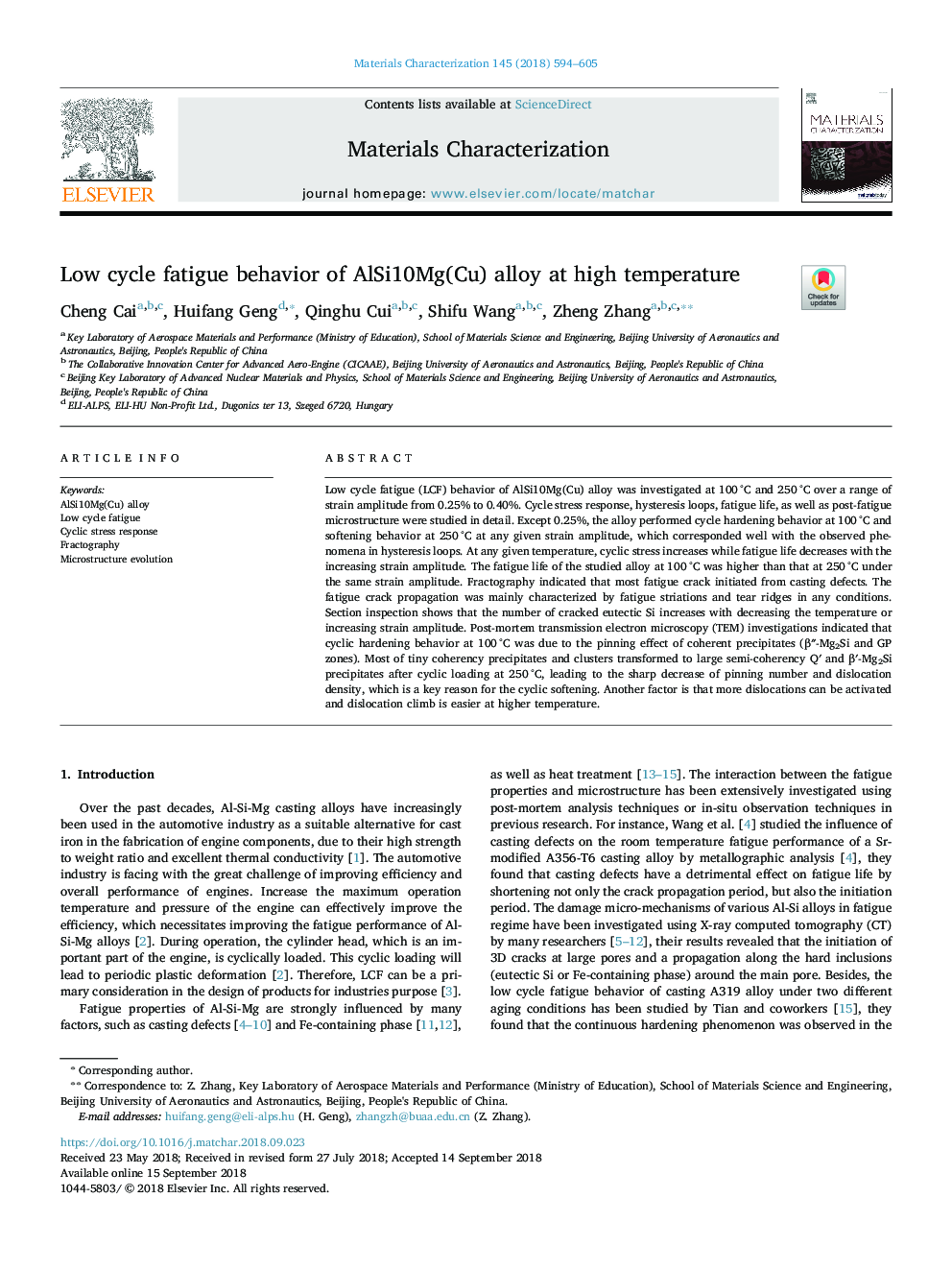| کد مقاله | کد نشریه | سال انتشار | مقاله انگلیسی | نسخه تمام متن |
|---|---|---|---|---|
| 11032787 | 1645141 | 2018 | 12 صفحه PDF | دانلود رایگان |
عنوان انگلیسی مقاله ISI
Low cycle fatigue behavior of AlSi10Mg(Cu) alloy at high temperature
دانلود مقاله + سفارش ترجمه
دانلود مقاله ISI انگلیسی
رایگان برای ایرانیان
کلمات کلیدی
موضوعات مرتبط
مهندسی و علوم پایه
مهندسی مواد
دانش مواد (عمومی)
پیش نمایش صفحه اول مقاله

چکیده انگلیسی
Low cycle fatigue (LCF) behavior of AlSi10Mg(Cu) alloy was investigated at 100â¯Â°C and 250â¯Â°C over a range of strain amplitude from 0.25% to 0.40%. Cycle stress response, hysteresis loops, fatigue life, as well as post-fatigue microstructure were studied in detail. Except 0.25%, the alloy performed cycle hardening behavior at 100â¯Â°C and softening behavior at 250â¯Â°C at any given strain amplitude, which corresponded well with the observed phenomena in hysteresis loops. At any given temperature, cyclic stress increases while fatigue life decreases with the increasing strain amplitude. The fatigue life of the studied alloy at 100â¯Â°C was higher than that at 250â¯Â°C under the same strain amplitude. Fractography indicated that most fatigue crack initiated from casting defects. The fatigue crack propagation was mainly characterized by fatigue striations and tear ridges in any conditions. Section inspection shows that the number of cracked eutectic Si increases with decreasing the temperature or increasing strain amplitude. Post-mortem transmission electron microscopy (TEM) investigations indicated that cyclic hardening behavior at 100â¯Â°C was due to the pinning effect of coherent precipitates (βâ³-Mg2Si and GP zones). Most of tiny coherency precipitates and clusters transformed to large semi-coherency Qâ² and βâ²-Mg2Si precipitates after cyclic loading at 250â¯Â°C, leading to the sharp decrease of pinning number and dislocation density, which is a key reason for the cyclic softening. Another factor is that more dislocations can be activated and dislocation climb is easier at higher temperature.
ناشر
Database: Elsevier - ScienceDirect (ساینس دایرکت)
Journal: Materials Characterization - Volume 145, November 2018, Pages 594-605
Journal: Materials Characterization - Volume 145, November 2018, Pages 594-605
نویسندگان
Cheng Cai, Huifang Geng, Qinghu Cui, Shifu Wang, Zheng Zhang,